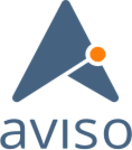Top Sales Management Softwares
Sales Management software empowers businesses by streamlining sales processes, improving productivity, and enhancing customer relationships. It provides tools for managing client interactions, tracking sales performance, and analyzing data. By organizing critical information in a centralized system, teams can efficiently close deals and meet targets. Sales Management software often includes featur... Read More
93 companies found
Product Description
Highspot is a software platform designed to help sales and marketing teams work more effectively. It simplifies the process of finding, working with, and sharing content that can be crucial during a sales engagement. Imagine having a well-organized digital library where every piece of content your team might need—like sales pitches, brochures, case studies, and even training documents—is easy to l... Read More
Users
- • No Data
Industries
- • No Data
Market Segment
- • No Data
Product Description
Apttus is a software company that provides a suite of tools designed to streamline and simplify important business processes. At its core, Apttus focuses on helping businesses manage their revenue operations more efficiently. This includes software for handling quotes, contract management, and billing, among other things. With Apttus, sales teams can create accurate quotes quickly, ensuring that ... Read More
Users
- • No Data
Industries
- • No Data
Market Segment
- • No Data
Product Description
Salesloft is designed for businesses looking to streamline and improve their sales processes. This software helps sales teams stay organized, track their progress, and enhance their outreach efforts. It consolidates various tools and features into one platform, providing a comprehensive solution for companies aiming to boost their sales efficiency. Salesloft allows you to manage your interactions... Read More
Users
- • No Data
Industries
- • No Data
Market Segment
- • No Data
Product Description
PitchXo is a handy tool designed for businesses looking to streamline their pitch process. If you're in sales or part of a team that's frequently presenting to clients or stakeholders, PitchXo could be a game changer for your everyday work. The software helps you manage and present your pitch materials all in one place. One of the best features is how easy it makes organizing your content. You c... Read More
Users
- • No Data
Industries
- • No Data
Market Segment
- • No Data
Product Description
Showpad is a software designed to help sales teams perform better. It offers tools to make the sales process smoother and more efficient by centralizing all sales and marketing content in one place. This means salespeople can find the right materials quickly and share them with customers during sales meetings or through follow-up emails. With Showpad, teams can also track how customers interact w... Read More
Users
- • No Data
Industries
- • No Data
Market Segment
- • No Data
Product Description
Pipetop is designed to make the lead generation process easier for sales and marketing teams. By streamlining the way companies find and qualify potential customers, Pipetop allows businesses to focus on what truly matters—building strong relationships and closing deals. One of the main benefits of using Pipetop is its simplicity. The software helps users quickly access a database of verified bus... Read More
Users
- • No Data
Industries
- • No Data
Market Segment
- • No Data
Post Affiliate Pro
Product Description
Affiliate marketing is a powerful way to increase your sales and grow your business, and Post Affiliate Pro is designed to make this process as seamless as possible. This software helps you manage and optimize your affiliate programs with ease. Whether you're looking to recruit new affiliates, track their performance, or streamline your commissions process, Post Affiliate Pro covers all these base... Read More
Users
- • No Data
Industries
- • No Data
Market Segment
- • No Data
Product Description
Yesware is a sales toolkit designed to make the daily tasks of sales professionals simpler and more effective. It provides a suite of features that help salespeople manage their emails, track engagement, and streamline their workflow. With Yesware, users can see when recipients open their emails and click on links, giving them valuable insights into how their messages are being received. One of t... Read More
Users
- • No Data
Industries
- • No Data
Market Segment
- • No Data
Product Description
Aviso is a software designed to help sales teams improve their effectiveness and achieve better results. It's essentially a tool that combines the power of artificial intelligence with practical sales strategies to provide meaningful insights and guidance to sales professionals. At its core, Aviso aims to streamline the sales process by offering predictive analytics, which help sales teams unders... Read More
Users
- • No Data
Industries
- • No Data
Market Segment
- • No Data
Product Description
Hightail is a user-friendly cloud-based collaboration and file-sharing tool designed to make your creative projects run smoothly. If you’ve ever dealt with the frustration of tracking down feedback on multiple email threads or struggled with sending large files, Hightail could be the solution you’re looking for. It allows you to share large files easily and securely with clients or team members,... Read More
Users
- • No Data
Industries
- • No Data
Market Segment
- • No Data
What features should you look for in Sales Management software?
When selecting Sales Management software, several important features can enhance sales processes and efficiency. Considering these features will help in selecting software that aligns well with your business needs and goals.
1. Contact Management
Efficient contact management is crucial in Sales Management software. It should offer an exhaustive database where sales reps can store and retrieve customer information. Features allowing for easy access, organization, and updating of client data ensure streamlined communication and foster better customer relationships.
2. Lead Management
Sales Management software needs effective lead management tools that facilitate tracking of leads throughout the sales funnel. This includes lead scoring, tracking interactions, and evaluating conversion potential. Effective lead management ensures no opportunity is lost, enhancing the efficiency of the sales team.
3. Pipeline Management
Pipeline management in Sales Management software helps visualize and manage the progression of sales deals. Features like deal tracking, opportunity forecasting, and drag-and-drop functionality assist in organizing sales stages, helping sales teams prioritize tasks and close deals efficiently.
4. Sales Forecasting
Accurate sales forecasting is a critical feature. Sales Management software should provide tools for analyzing past sales data and predicting future sales trends. This feature helps in strategic planning and decision-making by providing insights into sales trends and performance.
5. Reporting and Analytics
In-depth reporting and analytics are fundamental in Sales Management software. Customizable reports and dashboards allow sales teams to analyze performance metrics, track KPIs, and identify areas for improvement. This feature supports informed decision-making and strategy optimization.
6. Automation
Automation in Sales Management software reduces manual tasks, saving time and minimizing errors. Automated workflow capabilities include follow-up emails, task reminders, and data entry, allowing sales teams to focus more on selling activities versus administrative tasks.
7. Integration Capabilities
Seamless integration with other tools such as CRMs, email clients, and marketing platforms is vital. Sales Management software should support easy data sharing and real-time updates, ensuring a cohesive ecosystem that enhances productivity and efficiency across various departments.
8. Mobile Accessibility
Sales teams often need to access information on-the-go. Mobile accessibility ensures that Sales Management software is available on mobile devices, allowing sales reps to access client data, record information, and manage deals anytime, anywhere.
9. Security Features
Data security is imperative. Sales Management software should offer robust security features such as data encryption, access controls, and regular backups to protect sensitive customer information from breaches and unauthorized access.
10. User-friendly Interface
A user-friendly interface enhances the user experience and encourages software adoption among sales teams. Simple navigation, intuitive design, and checklist-driven workflows ensure that users can efficiently manage their tasks without extensive training.
When evaluating different Sales Management software options, ensuring these features are available will help select a solution that optimizes sales processes and increases productivity within sales teams.
How does Sales Management software improve sales team efficiency?
Streamlined Process Management
Sales Management software enhances efficiency by streamlining various sales processes. It automates routine tasks such as data entry, follow-up reminders, and report generation. This automation reduces the time sales teams spend on manual tasks, allowing them to focus more on strategic activities.
Enhanced Communication and Collaboration
Effective communication and collaboration are vital for sales teams. Sales Management software provides platforms where team members can easily share information, updates, and feedback. Centralized information access ensures everyone is aligned, minimizing misunderstandings and redundancies in efforts.
Improved Data Management and Analysis
Handling data efficiently is crucial for sales teams. Sales Management software allows for effective management and analysis of customer data. By integrating data from various sources, sales representatives can gain deeper insights into customer behavior and preferences. This data-driven approach enables reps to tailor pitches, increasing the likelihood of conversions.
Better Lead and Opportunity Tracking
Tracking leads and opportunities accurately is a strength of Sales Management software. It enables sales teams to categorize and prioritize leads based on predefined criteria, ensuring that high-potential leads receive timely attention. Sales teams can also track the progress of each opportunity through the sales funnel, adjusting strategies as needed.
Automation of Routine Tasks
Routine tasks, such as sending follow-up emails and logging sales activities, are automated in Sales Management software. This automation liberates sales representatives from repetitive tasks, freeing up time for more customer interactions and strategic planning. Consequently, sales teams can maintain higher engagement levels and close deals faster.
Real-time Reporting and Forecasting
Sales Management software provides tools for real-time reporting and forecasting. It enables sales teams to quickly generate accurate reports on performance metrics, sales figures, and forecasts. These insights help teams make informed decisions, adapt to changes swiftly, and maintain a competitive edge.
Integration with Other Systems
Sales Management software often integrates with other business systems such as CRM, ERP, and marketing automation platforms. This integration ensures seamless data flow between departments, reducing errors and duplicating efforts. Integrated systems enhance team performance by providing a comprehensive view of sales activities and customer interactions.
Task Prioritization and Efficiency
By helping sales team members prioritize tasks effectively, Sales Management software maximizes the impact of their efforts. Algorithms can rank tasks based on importance, allowing reps to focus on what matters most. This prioritization ensures efficient use of resources, ultimately leading to better outcomes.
Customer Relationship Management
Sales Management software enhances customer relationship management through structured data handling and interaction tracking. By maintaining detailed records of customer interactions, sales teams can personalize communications and improve customer satisfaction. This attention to detail strengthens relationships, making future sales more likely.
Sales Management software plays an essential role in boosting team efficiency by automating tasks, improving data handling, fostering better collaboration, and enabling strategic decision-making through real-time data insights. By freeing sales teams from routine burdens, it allows them to concentrate on building relationships and closing deals, thus significantly enhancing overall productivity.
What are the benefits of using Sales Management software in a business?
Streamlined Sales Process
Sales Management Software enhances the efficiency of the sales process. It allows sales teams to automate repetitive tasks, reducing manual effort and errors. This automation leads to quicker transaction processing, ensuring that potential leads are not lost due to delays.
Improved Customer Relationship Management
By using Sales Management software, businesses can maintain detailed records of customer interactions. This insight enables the sales team to personalize communications, fostering stronger customer relationships. A deeper understanding of customer needs can also lead to higher satisfaction and loyalty.
Enhanced Data Analysis and Reporting
Sales Management software provides robust tools for analyzing sales data. The software can generate detailed reports on sales performance, allowing businesses to identify trends, track progress, and adjust strategies accordingly. Such insights help in making informed decisions that drive growth.
Increased Sales Productivity
With Sales Management Software, sales personnel can manage their tasks more effectively. The tool helps prioritize leads, schedule follow-ups, and track customer interactions. This organized approach minimizes wasted time and resources, leading to increased productivity and higher sales volumes.
Simplified Communication and Collaboration
These platforms often include features that facilitate easy communication and collaboration among team members. Shared access to sales information ensures that everyone is on the same page, reducing misunderstandings and improving team efficiency. This unity enhances team coherence and achievement of sales targets.
Optimized Sales Forecasting
The ability to forecast sales accurately is a critical advantage of Sales Management software. By analyzing past sales data and market trends, the software can predict future sales outcomes with higher precision. Accurate forecasting helps businesses in inventory management and financial planning, reducing the risk of overproduction or stockouts.
Better Client and Account Management
Sales Management software aids in managing client accounts and tracking their lifecycles. Businesses can prioritize high-value clients and allocate resources more effectively. This targeted approach optimizes account management, enhancing customer satisfaction and retention.
Flexible Integration Capabilities
Sales Management software often integrates with other business systems, providing a cohesive technology environment. This integration allows seamless data sharing between software applications, improving accuracy and reducing duplication work. Hence, it creates a more efficient workflow across various business operations.
Enhanced Scalability
As businesses grow, Sales Management software scales to meet increasing demands. The software adapts to handle larger volumes of data and more complex sales processes, supporting growth without causing service disruption. This scalability ensures long-term usability and value as the business evolves.
Better Time Management
By automating routine tasks, Sales Management software liberates time for sales teams. They can focus more on strategic activities like negotiating deals and nurturing customer relationships. Improved time management translates into more successful sales interactions and outcomes.
Competitive Advantage
Employing Sales Management software ensures businesses operate more effectively, providing a competitive advantage. With enhanced capabilities in data analysis, customer management, and sales tracking, companies can outperform competitors who rely on less sophisticated methods, leading to increased market share and profitability.
How can Sales Management software help with tracking sales performance?
Sales Management software is a crucial tool for businesses aiming to enhance their sales processes and performance. By integrating various functionalities, it provides a structured and efficient way to monitor and analyze sales activities. Here's how it assists in tracking sales performance:
Centralized Data Management
Sales Management software allows companies to store all sales-related data in a centralized database. This means sales teams can easily access and update customer information, transaction records, and communication logs. Having all this data in one place makes it easy to track sales performance by providing a clear picture of sales history and trends.
Real-Time Reporting
With Sales Management software, businesses can generate real-time reports on various sales metrics such as total sales, sales by product, or individual salesperson performance. Real-time reporting allows management to make informed decisions quickly, as they can assess the current sales performance without delays. This capability supports immediate strategy adjustments and aids in achieving sales targets more efficiently.
Sales Pipeline Tracking
The software aids in tracking the progression of deals through the sales pipeline. By visualizing each stage of the sales process, managers can identify bottlenecks or stages where deals stall. This insight allows for interventions that streamline the process, thereby enhancing overall sales efficiency.
Performance Analytics
Sales Management software offers advanced analytics tools that scrutinize sales data to highlight trends, patterns, and insights. These analytics help managers to understand what works and what doesn't in their sales strategy. By examining metrics like conversion rates and average deal size, companies can optimize their sales tactics and improve performance.
Goal Setting and Monitoring
The software supports the setting of sales goals and objectives and tracks their progress over time. Sales teams can align their activities with the company's targets and actively monitor their achievements. This ensures accountability and provides a sense of direction, contributing to improved sales outcomes.
Improved Forecasting
By analyzing past sales data and current market conditions, Sales Management software enhances sales forecasting accuracy. Accurate forecasts are vital as they help businesses to plan resources, budget effectively, and set realistic sales targets. This forward-looking approach is necessary for sustained success in sales performance.
Team Collaboration
Sales Management software promotes team collaboration by providing a platform for shared information and communication. Teams can work together more effectively by sharing insights, client interactions, and opportunities. This collaborative environment fosters a cohesive sales approach, which is crucial for maintaining high performance.
Activity Tracking
Tracking daily sales activities, such as calls, meetings, and follow-ups, is simplified through the software. By ensuring that tasks are completed on schedule, sales representatives maintain productivity and avoid missed opportunities. This level of oversight ensures consistent engagement with prospects, leading to better sales outcomes.
In summary, Sales Management software is an invaluable asset for tracking sales performance. By offering tools for data centralization, real-time reporting, pipeline tracking, and collaborative efforts, it allows companies to maintain a competitive edge in their sales operations.
What role does Sales Management software play in customer relationship management?
Sales Management software plays a crucial role in managing and enhancing customer relationships. By integrating various functions related to sales processes, sales data analysis, and customer interactions, it serves as a core component in customer relationship management.
Streamlining Sales Processes
Sales Management software aids in streamlining the sales process by providing tools for effective lead management. It tracks leads from initial contact through conversion, helping sales teams prioritize tasks and manage their pipeline more efficiently. This direct oversight ensures that potential customers are not lost due to oversight or mismanagement.
Centralized Customer Data
A critical function of Sales Management software is the centralization of customer data. It stores comprehensive information about each customer, including previous interactions and transactions. This centralized database allows sales teams to access updated customer information quickly, fostering better communication and more informed decision-making.
Enhancing Communication
Sales Management software significantly improves communication between sales teams and customers. It enables automated follow-ups and personalized communication, which helps in maintaining continuous engagement with clients. By analyzing customer preferences and behavior, the software allows sales teams to tailor their communication strategies, enhancing customer satisfaction and loyalty.
Sales Performance Analysis
Analyzing sales performance is another essential role of Sales Management software within customer relationship management. The software provides detailed insights into sales trends, team performance, and market demand. By leveraging this data, sales managers can identify strengths and weaknesses in their sales approach. Improved strategies lead to better customer relationships and increased revenue.
Improving Customer Experience
A primary goal of Sales Management software is to improve the overall customer experience. It helps in identifying customer needs and preferences, enabling businesses to provide customized solutions. By delivering a personalized experience, the software increases customer satisfaction and encourages repeat business, which is vital for long-term customer relationships.
Integrating with Other Systems
Sales Management software often integrates with other business applications, such as marketing automation tools and customer service software. This integration offers a unified view of customer interactions across different departments, leading to a cohesive customer relationship strategy. It ensures that every interaction is consistent and informed, which is pivotal for building trust and credibility with customers.
Automating Routine Tasks
Automation of routine tasks is facilitated by Sales Management software, freeing up valuable time for sales representatives to focus on building relationships. Tasks such as sending follow-up emails, scheduling appointments, and updating customer records can be automated, leading to increased efficiency and productivity. This efficiency not only maximizes the output of sales teams but also contributes to more personalized customer care.
Supporting Strategic Decision Making
Lastly, Sales Management software supports strategic decision-making processes by providing data-driven insights. It offers a comprehensive view of customer interactions and market trends, enabling businesses to make informed decisions. These insights are invaluable in devising strategies that align with customer needs and industry developments, thereby solidifying customer relationships.
In conclusion, Sales Management software is integral to effective customer relationship management, offering tools and insights that enhance interaction, satisfaction, and loyalty.
How do companies implement Sales Management software in their sales process?
Identification of Needs and Requirements
Companies start by identifying their specific needs and requirements before implementing Sales Management software. This involves understanding the unique challenges faced by the sales team and the goals of the sales process. Businesses analyze current processes to find areas that need improvement, such as lead tracking, communication, or reporting. Defining these needs helps in selecting the right Sales Management software that aligns with organizational objectives.
Selection of Suitable Software
Once the company has a clear understanding of its requirements, it evaluates different Sales Management software options available. This step involves researching software capabilities, user reviews, and scalability. The company often involves stakeholders from IT, sales, and management during the selection process to ensure the chosen software meets everyone's needs. Demos and trial versions play a crucial role in testing the software's functionality and user interface.
Customization and Setup
After selecting the appropriate Sales Management software, companies customize the platform to fit their sales processes. This includes configuring workflows, setting up integrations with existing systems such as CRM, and defining user roles and permissions. Customization is critical as it ensures the software aligns with existing sales strategies and processes. It is important to address both technical setup and aligning the software with strategic sales goals.
Training and Onboarding
Successful implementation requires thorough training of the sales team to maximize the benefits of the Sales Management software. Training sessions focus on teaching users how to navigate the software, input data, and utilize features that enhance productivity. Companies may organize workshops or webinars to ensure that all users are comfortable with the new system. Continuous support and learning resources are essential for employees to transition smoothly to the new software.
Integration with Existing Systems
Integration with existing systems is vital for seamless data flow across different departments. Sales Management software often needs to interface with CRM, marketing, and analytics tools. Companies work to ensure all systems communicate effectively, allowing for accurate data sharing and reporting. Proper integration allows sales teams to access necessary information without switching between multiple platforms.
Implementation of Processes and Feedback Loops
Once the Sales Management software is live, companies implement new sales processes designed to take advantage of the software's capabilities. Continuous monitoring and feedback loops are established to evaluate the software’s impact on sales performance. Regularly reviewing these outcomes helps in making necessary adjustments and optimizing the use of the software. Feedback from the sales team is crucial in determining ongoing improvements and addressing any challenges faced.
Measurement and Optimization
Companies measure and analyze the performance of their sales process post-implementation. This involves tracking key performance indicators (KPIs) such as lead conversion rates, sales cycle length, and revenue growth. Based on the insights gained, companies make data-driven decisions to further optimize their sales strategies. Regular analysis ensures the Sales Management software is facilitating the desired improvements and benefits.
Implementing Sales Management software requires a methodical approach, involving detailed planning and collaboration across departments to enhance sales effectiveness.
What are common challenges faced when using Sales Management software?
Integration with Existing Systems
One of the significant challenges when using Sales Management software is integrating it with existing systems. Organizations frequently utilize a variety of software solutions for different operations, and ensuring seamless data flow across these platforms can be a complex task. Without effective integration, data silos may develop, leading to inefficiencies and inaccurate data insights.
Data Quality and Accuracy
Sales Management software heavily depends on the quality and accuracy of data inputted. Inaccurate or incomplete data can severely impact decision-making processes. Ensuring that the data is clean, consistent, and complete often requires additional procedures for data verification and validation. Poor data quality can lead to misguided sales strategies and missed opportunities.
User Adoption and Training
Another prevailing challenge is achieving high levels of user adoption. Employees may be resistant to adopting new tools due to unfamiliarity or perceived complexity. Comprehensive and ongoing training programs are essential to ensure users can operate the Sales Management software efficiently. Without proper training and support, users may not fully leverage the capabilities of the software.
Customization and Scalability
Organizations may find that out-of-the-box solutions do not fully meet their unique needs, necessitating customization. This can become a challenge if the software does not offer flexible customization options. Moreover, as businesses grow, they need a Sales Management software that can scale accordingly. Evaluating the software’s scalability to match business growth is a critical consideration.
Cost Management
Managing the costs associated with implementing and maintaining Sales Management software can be challenging. Businesses need to consider not only the initial investment but also ongoing costs such as licensing fees, updates, and training. Balancing these expenses while ensuring a return on investment requires careful financial planning and strategic decision-making.
Data Security and Privacy
Safeguarding sensitive sales and customer data is crucial, making data security a primary concern when using Sales Management software. Ensuring that the software complies with relevant data protection regulations is vital, and any breaches can lead to severe consequences. Implementing robust security measures and regularly updating security protocols are necessary to protect valuable data assets.
Reporting and Analytics
While Sales Management software offers reporting and analytic capabilities, extracting actionable insights can be challenging. The complexity of data visualization tools and the need to understand various metrics can cause difficulties for users. Companies may need to invest in additional analytics expertise to harness the software’s full potential for data-driven decision-making.
Technical Support and Issue Resolution
Access to reliable technical support is crucial for smoothly operating Sales Management software. Technical issues or software bugs can disrupt sales operations, leading to significant productivity losses. Efficient and responsive customer support is vital to address these problems quickly. Ensuring the availability of timely assistance requires evaluating the vendor’s support capabilities and service level agreements.
Understanding these challenges can guide businesses to choose the right Sales Management software and deploy strategies to mitigate potential issues effectively.









